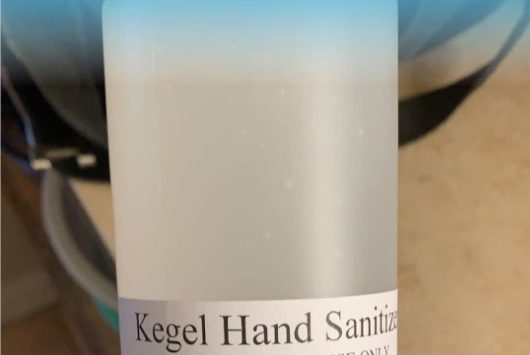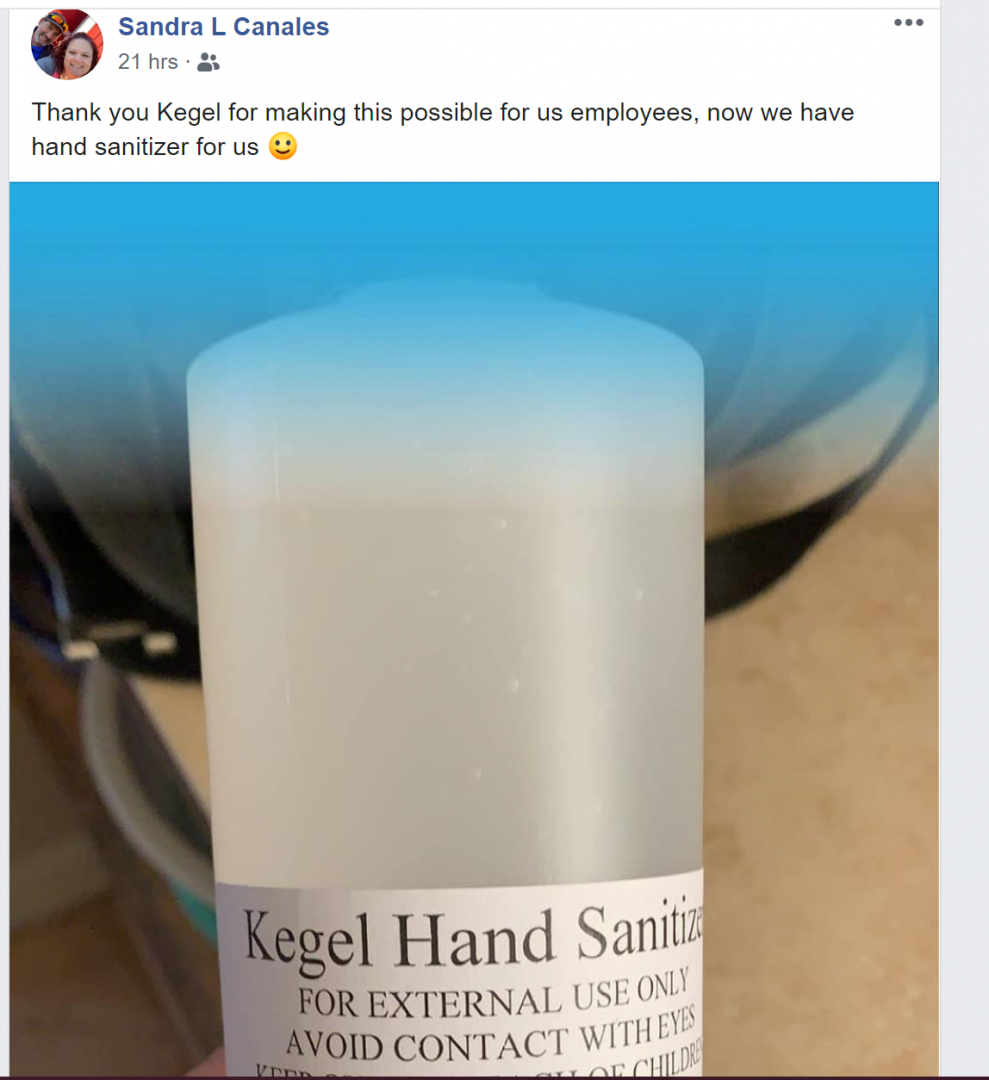Amid Shortage Due to COVID-19, Kegel Provides Employees with Custom-Made Hand Sanitizer

If it seems as though the end of the world is upon us and you happen to work at the Kegel Training Center in Lake Wales, Fla., you're in luck in at least one respect.
With hand sanitizer virtually non-existent at your local grocer, drug store or hardware store these days as the COVID-19 pandemic pushes demand for it to seemingly unprecedented levels, Kegel decided to take matters into its own, ah-hem, hands: It made its own.
Drawing the main ingredient from its lane conditioner and other ingredients from lab samples available on-site thanks to various testing underway at the facility, the company mixed its own hand-cleaning product and filled plastic bottles with it complete with custom-made labels that read, "Kegel Hand Sanitizer" and advise that it is to be used only for external use and kept out of the reach of children.
You'd think the company had been in the hand sanitizer business all along. And, who knows? Maybe someday it will be.
Kegel production worker Sandra L. Canales expressed her appreciation in a Facebook post that featured a picture of a bottle of the hand sanitizer and read, "Thank you Kegel for making this possible for us employees, now we have hand sanitizer for us."

Erin Wall, the company's marketing and executive coordinator, said, "I'm using hand sanitizer more than ever right now, and it is certainly comforting to have access to it when it is so hard to find."
That is particularly true at a time when The New York Times reports that, "If you don't have hand sanitizer, you're not likely to get some while the manufacturers create enough supply to meet the frenzied demand caused by panic over coronavirus."
Kegel supplied each of its employees with a 16-ounce bottle to use as they wish and even take home for the benefit of their families. And the company has the capacity to make more should their employees need it.
The New York Times also advises that, if you are unable to get any hand sanitizer, "washing your hands thoroughly with soap is more effective than using hand sanitizer."
Though the Times does offer this concession as to the comforts, psychological and otherwise, access to hand sanitizer affords: "If you're on a train and a sudden lurch forces you to grab a pole, we can understand wishing for a squirt of something purifying." Yes. Can't we all?
Demand for hand sanitizer has become so intense that CNN reports that distilleries are tapping into the same resourceful spirit Kegel has shown by, in their case, making their own using "in-house alcohol."
Business Insider reports that, earlier this month, Hudson Square Pharmacy stocked its shelves with a fresh supply of Purell only to see it sell out in less than an hour. Other New York City pharmacies have resorted to making their own as well, using alcohol and aloe vera gel, though supply of those ingredients reportedly is dwindling as well.
Interested in following Kegel's lead by making your own? Tanya Crum, assistant professor of biology at Benedictine University in Lisle, Ill., has some suggestions for you here.

In the meantime, Wall reported that Kegel is "constantly monitoring" the situation, "talking to customers and industry partners, and trying to make informed decisions as we navigate this unprecedented time."
The company has created a task force that meets on a nearly daily basis to address the quickly developing health crisis. "We started meeting weeks ago with regard to our customers in Asia that were being affected, and now we are handling concerns that are more close to home," Wall reported.
At the same time, Kegel has intensified its focus on cleaning throughout the workplace and is allowing employees to work from home, postponing on-site events and rescheduling lessons, enforcing a mandatory quarantine of any employee who has returned from travels, cancelling all non-essential travel, advising employees experiencing symptoms to stay home, encouraging social distancing and hand-washing, and minimizing face-to-face meetings.





